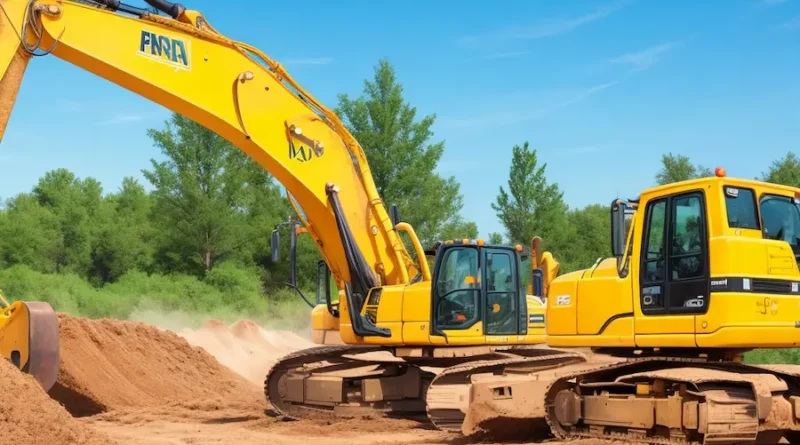Understanding the Benefits of Renting Construction Equipment vs. Buying
Renting construction equipment is an option many companies consider. It comes with its pros and cons that managers must carefully review. Managing a piece of equipment can be a time-consuming task. It involves fluid checks, service, maintenance, scheduling, and more. With rental equipment, all of these logistics are handled by the rental company. It allows contractors to save time and resources.
Taxes
The equipment rental industry has experienced a lot of advancement in everything from technology on the machine itself to how contractors request and receive their rentals. With telematics systems becoming commonplace, accurately forecasting utilization rates and tracking inventory empowers construction contractors to make better financial decisions. There are still some instances where buying equipment makes more sense than renting. Purchasing may be best if the contractor knows they will use the equipment regularly or for a specific project. However, before making that major purchase, any contractor needs to calculate all the costs associated with owning equipment, including transport and storage of the machines, repairs, working capital, depreciation, and resale value. Diamond T Service’s right away services offer excellent flexibility without worrying about these additional fleet management tasks.
Cost
The cost of buying equipment is much higher than renting. When purchasing equipment, you invest much capital into a project that will likely depreciate over time. It leaves you with a chunk of your resources tied up and can limit your ability to bid for and accept projects. Additionally, owning equipment will incur additional costs such as insurance, transportation, storage, and energy. It can make it very expensive on a per-day basis to hold equipment. Renting equipment allows you to avoid these costs and save money in the long run. Renting also gives you access to newer technology to help you compete in the market and win more bids.
Maintenance
Maintaining heavy equipment can be a huge responsibility and cost for contractors. Checking fluids, replacing parts, and ensuring the machine complies with safety regulations can add up quickly. Fortunately, renting eliminates the maintenance burden and can save contractors money in the long run. If you are a contractor that requires heavy equipment, consider renting it. You can even trade it in for a new model when ready for an upgrade and avoid losing any resale value on your investment. Renting can also save on storage and transportation costs from purchasing equipment. However, buying may be better if you need a particular type of equipment for short-term jobs or recurring projects. Ultimately, it boils down to your budgeting plan and unique business requirements.
Flexibility
One of the benefits of renting equipment is its flexibility. If you are a contractor still deciding whether to buy specific pieces of equipment due to uncertainty in the market or your budget, renting can be the best option for you. It allows you to experience the new technology without the commitment or risk of purchasing equipment that may not fit your business needs. The rental companies include transportation and storage costs in the rental rate, so there are no surprise fees for getting the equipment on the job site. Another advantage of renting is avoiding the depreciation cost of purchasing equipment. Purchasing equipment can depreciate as it sits in the yard, limiting your ability to take on future projects. Renting equipment avoids this depreciation and keeps your company’s resources available for other purposes.
Insurance
It’s common for construction companies to rent or lease equipment such as forklifts, excavators, generators, tampers, and even construction site cameras. It can save on costs, storage requirements, and overall cash flow for the business. Purchasing equipment requires a large chunk of capital and locks up that money for years, potentially limiting the company’s ability to bid for or accept projects in the future. On the other hand, renting is considered an operational expense and can give contractors tax breaks on depreciation. Rentals show up when needed and get taken away once their job is complete, allowing construction teams to focus on other tasks. The rental equipment company typically handles any maintenance and repair costs. However, it is essential to evaluate if insurance coverage is available and what it would cost.
Visit the rest of the site for more interesting and useful articles.

